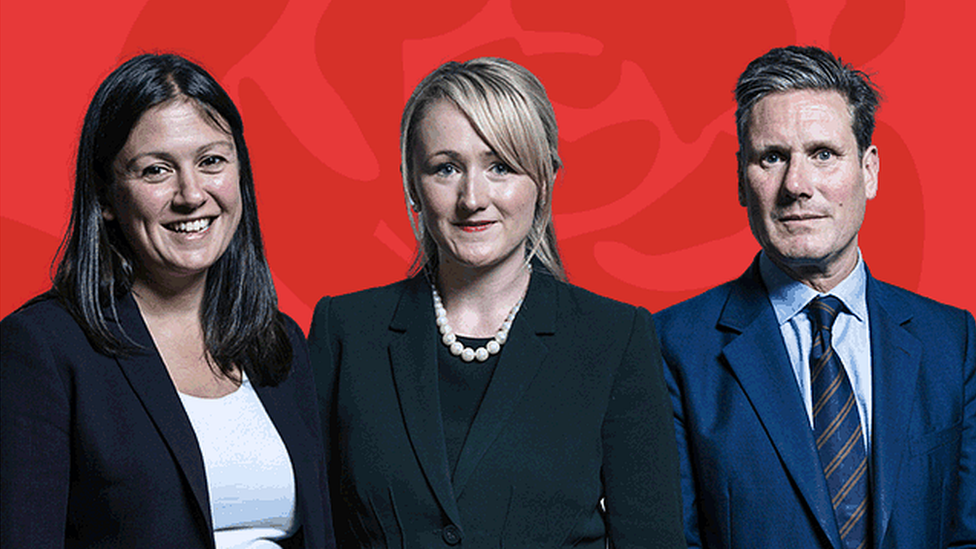What does the next Labour leader think about Scotland?
- Published
- comments
Four candidates remain in the race to become leader of the Labour Party and of the opposition at Westminster - but what do they have to say about Scotland?
Sir Keir Starmer, Rebecca Long-Bailey, Lisa Nandy and Emily Thornberry all agree that winning back support in Scotland will be crucial if they ever stand a chance of becoming prime minister. So what do they propose to do about it?

Sir Keir Starmer
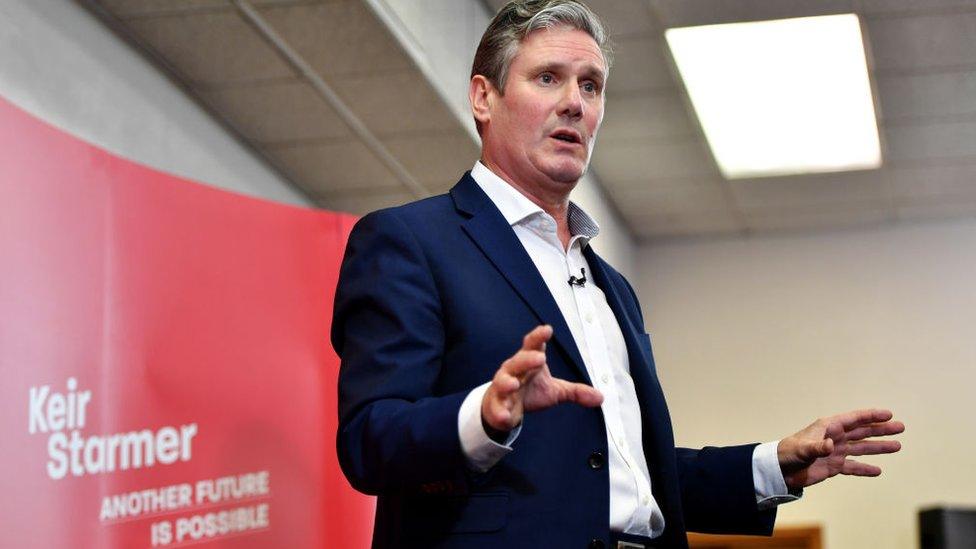
An early frontrunner in terms of nominations, external, Sir Keir Starmer already has the support of four Scottish constituency Labour parties - the only four which have declared so far.
The shadow Brexit secretary told journalists during a visit to the Scottish Parliament, external on Tuesday that the SNP would have a mandate to hold a second independence referendum if it wins the 2021 Holyrood election.
But he stressed that he does not believe independence would be "the right way forward" for Scotland.
Sir Keir is currently travelling across the UK "making the case for a radical transfer of power, wealth and opportunity" to local communities, because "people want decisions about them made closer to them".
He has called for a new federal model of government, which he says would "end the monopoly of power in Westminster and spread it across every town, region and nation of the UK".
This position has been endorsed by Labour's only MP in Scotland, external, Ian Murray, who said it was "a positive way forward for the UK" - but Mr Murray is firmly opposed to another referendum.
Mr Starmer said: "We need a new constitutional settlement - a large-scale devolution of power and resources. This will involve building a new long-term political and constitutional consensus. I believe that could best be built on the principle of federalism."
The Holborn and St Pancras MP also told the BBC that nationalism is "the wrong answer", saying: "I'm calling for a new political consensus, a radical rethink about how we make the UK itself and the regions work in the 21st century, and doesn't cause the upsurge in nationalism which in the end will break up our United Kingdom."
Rebecca Long-Bailey
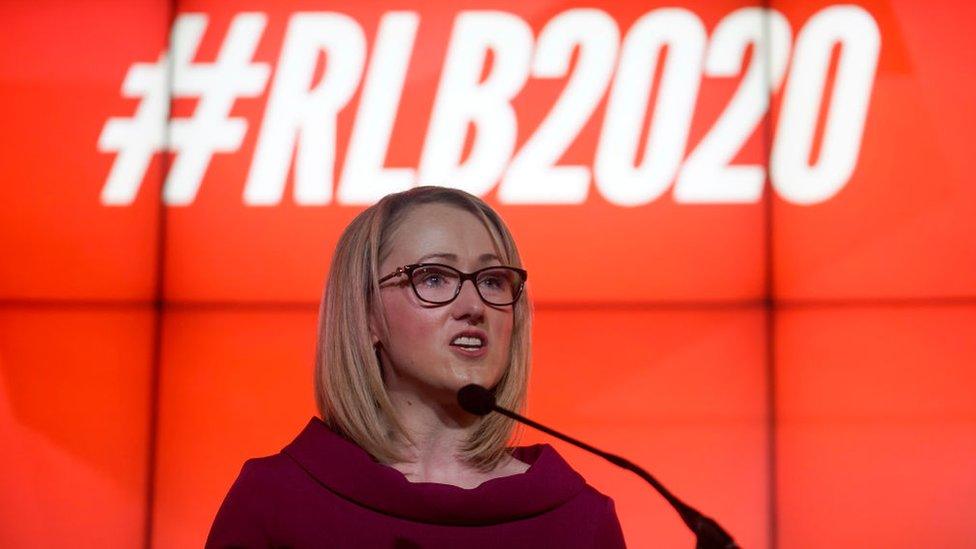
Rebecca Long-Bailey is currently in second place in the contest in terms of nominations, and is an ally of the departing Jeremy Corbyn - rating his leadership "10 out of 10".
The shadow business secretary says that while Labour struggled in the recent general election because of its positions on Brexit and independence, its problems in Scotland date back much further.
She said: "This has been a long-term decline, certainly starting way back in the 1980s when our whole economic model shifted, through the to noughties where people felt there was a shift in political thought around independence and how Scotland was viewed in comparison with Britain.
The Salford and Eccles MP says Holyrood should be on more of an "equal footing with Westminster", and would devolve more powers to that end - saying "I would like to see as much political control and economic control devolved as is possible".
She told BBC Scotland: "You can't truly view a parliament as independent if it's within a hierarchy, where Westminster is at the top of the tree and the other parliaments are seen somewhere in the middle - they're seen as satellites that work for Westminster, which is not what was intended when the Scottish Parliament was created. It was created to determine its own future and to be seen as an entity in its own right."
Mrs Long-Bailey says she is opposed to independence, but says "if the Scottish parliament determined it wanted to have another independence referendum it would not be democratically right for us to block that".
She added: "I would not do anything to block that, but I would campaign for the union to remain."
Lisa Nandy
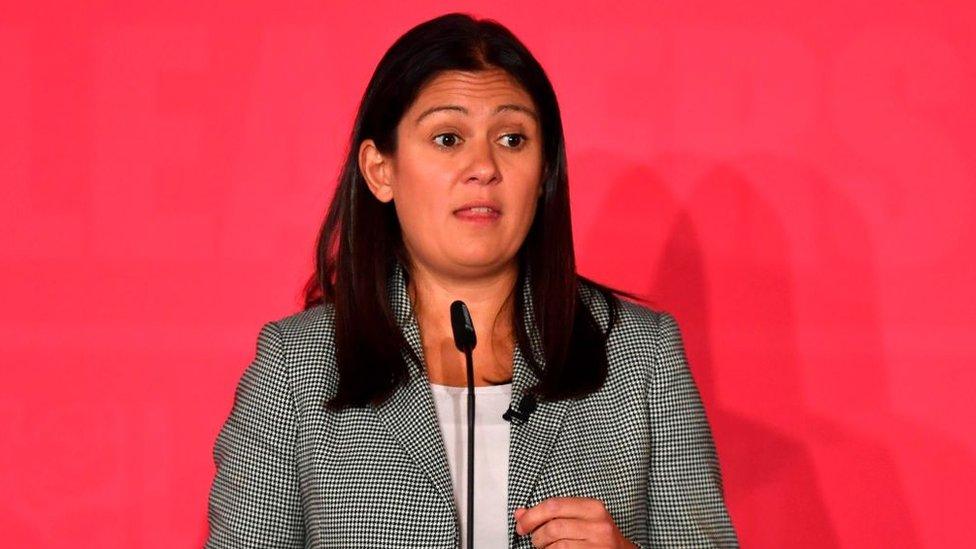
Lisa Nandy says she wants Labour to "become a grassroots movement again", and to form a government which will work with people in different parts of the country instead of dictating to them.
She told BBC Scotland: "For too long what we've had in this country - and this is as true where I hail from in Wigan as in other parts of the UK - that we've had a small group of people sitting behind desks in central London commissioning think tank reports and focus groups and then going out to the country and telling people who live very different lives that we know what your problems are, we know how to fix it, and we're the people who can do it. That settlement simply won't wash any more."
Ms Nandy says she would add Scottish party leader Richard Leonard to the shadow cabinet, and has even raised the idea of moving the UK party's headquarters north of the border.
On the constitution, Ms Nandy said she would be "very in favour of a conversation built from the ground up" about which powers need to be "cascaded around the country" - but opposes Scottish independence.
She said: "We had a referendum in 2014 and we were told by the SNP at the time that this was a "once in a generation" referendum. You can't keep changing the rules as and when it suits you."
Ms Nandy ran into controversy early in her campaign when she said Labour should "look to Catalonia" for lessons on how to defeat Scottish nationalism, a comment First Minister Nicola Sturgeon said people would be "mortified" by.
The Wigan MP says the idea she was referring to the Spanish authorities using force during the disputed referendum in Catalonia in 2017 is a "wilful misrepresentation" by the SNP, and says she meant Labour should look at how "socialist sister parties have peacefully resisted divisive nationalism to advance the cause of social justice".
Emily Thornberry
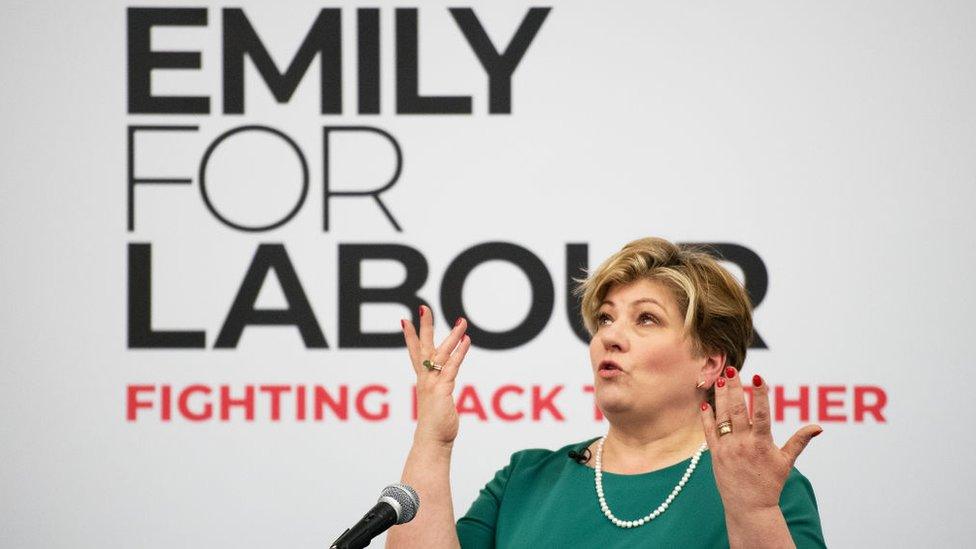
Shadow Foreign Secretary Emily Thornberry is pitching herself as the most experienced candidate, having regularly gone up against Prime Minister Boris Johnson when he was foreign secretary.
Her campaign team is being headed by former Scottish Labour MP Danielle Rowley, and the Islington MP says winning back support north of the border is "absolutely a priority".
Ms Thornberry says Scotland is "lost in a maelstrom where everything comes back to constitutional issues again and again", something she says lets the SNP "off the hook" on topics like education, health and drugs.
She said Labour should have prioritised a referendum on EU membership instead of a general election, and said the party had made a "mistake" in allowing the SNP to "push us into a general election".
She added: "If they were so interested in remaining in the EU, they should not have taken their eye off the ball and should have stood with us and said we want to have a confirmatory referendum on Boris Johnson's deal instead of going for a general election."
On the topic of independence, Ms Thornberry said she appreciated that "a great deal has changed" since the "once in a generation" referendum in 2014, and said she would "listen and learn from Scottish people as to what the best way forward is on this".
She added: "I do think personally that the way forward is for us to stick together, and for us to have an offer which says we look at every power there is in Westminster and we work out if it needs to be in Westminster, or devolved.
"I think the model in Scotland is not ideal, because I think devolution to Scotland has resulted in power being focused in Edinburgh, and I know people in Glasgow aren't terribly happy with that, let alone the Highlands and Islands. There's a conversation we need to have about whether or not there should be another layer of devolution in Scotland as well."
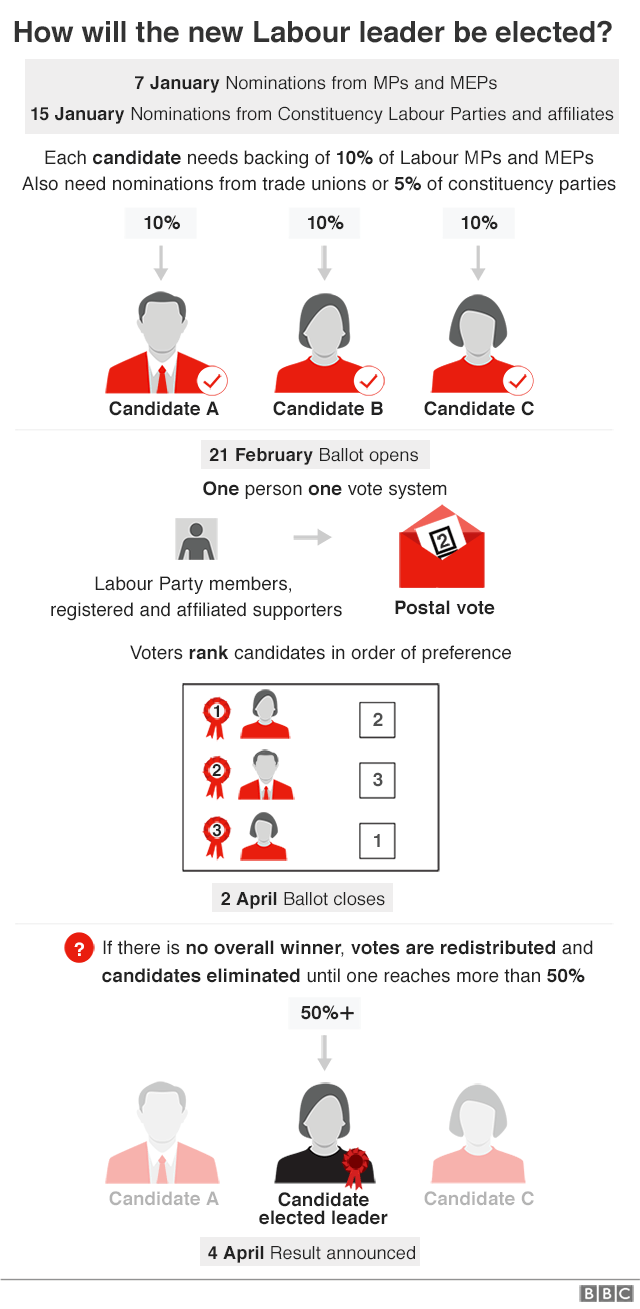
- Published18 February 2020
